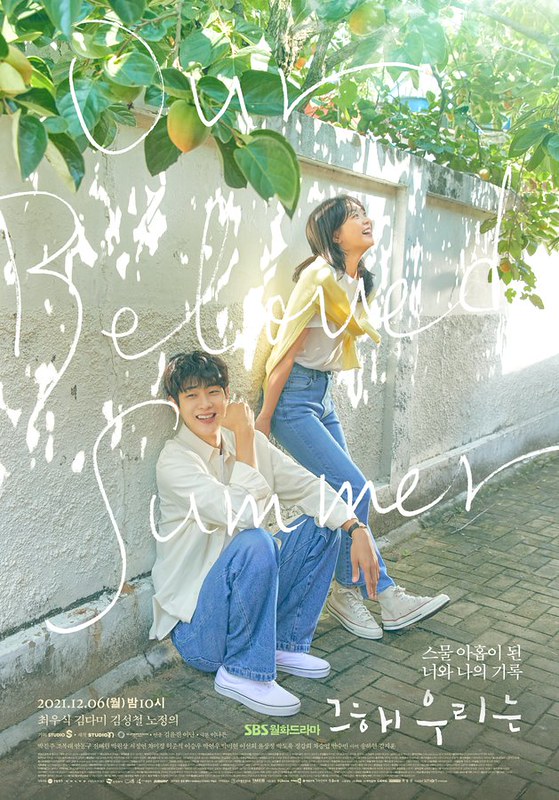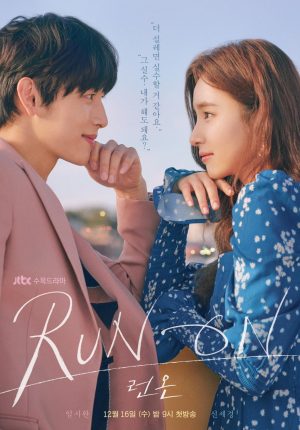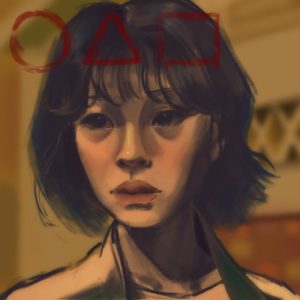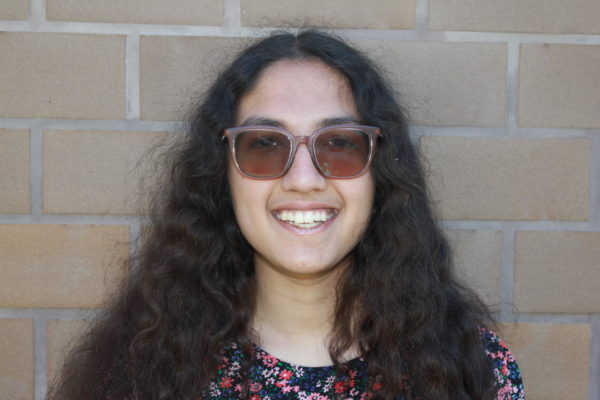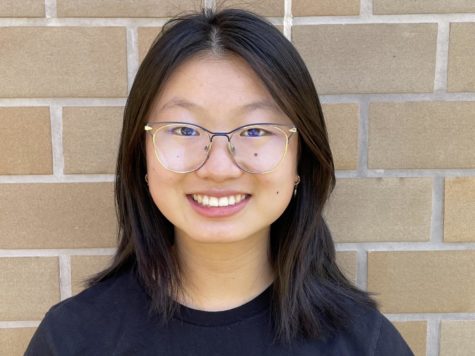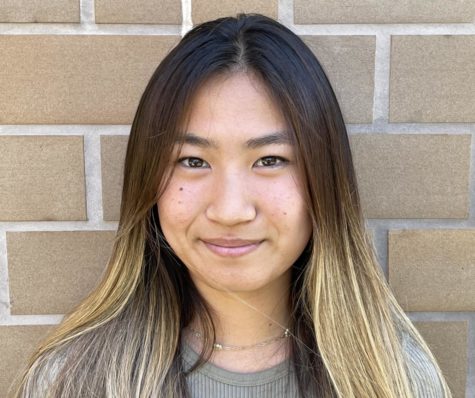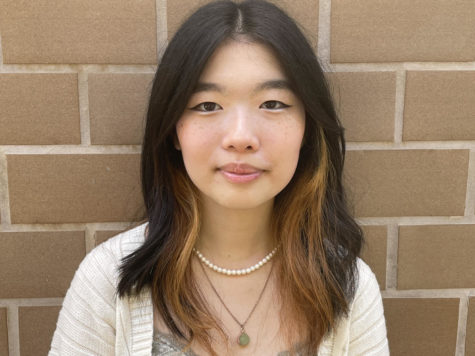“Our Beloved Summer” plays with comforting nostalgia
Photo courtesy of Netflix
“Our Beloved Summer” portrays the awkward yet tantalizing tension between ex-lovers.
February 15, 2022
This review contains mild spoilers for “Our Beloved Summer.”
A second first love. Perhaps a contradiction, but the Korean drama “Our Beloved Summer” proves that this notion may not be as oxymoronic as it appears. The show explores the complicated feelings of a past relationship with a warm and refreshing tone, airing its final episode on Jan. 25, 2022 on Netflix.
The drama, directed by Kim Yoon-jin, stars “Parasite” actor Choi Woo-shik and “Itaewon Class” actress Kim Da-mi as the protagonists Choi Ung and Kook Yeon-su. This slice-of-life story based on Han Kyoung Chal’s webcomic centers around them two, who filmed a viral documentary together in high school. The documentary contrasted the lives of the best and worst student by pushing the two into uncomfortably close proximity. Despite their initial bickering, the two dated for five years until a painful breakup emotionally tears them apart. Yet, 10 years after the documentary aired, they are brought back together to film again, forced to face each other and all of their changes. Ung, now a popular and free-spirited illustrator, and Yeon-su, a diligent employee at a PR firm, are forced to confront their lingering feelings.
Choi Woo-shik and Kim Da-mi both starred in the 2018 action-thriller movie, “The Witch,” as the protagonists—and it shows. Despite playing vicious adversaries in the film, the established on-screen chemistry diffuses and harmonizes with the romantic plot in the newer K-drama. Even with the stark contrast between the two genres the actors have portrayed, there is no sense of discomfort with their roles. Their ability to personify blood-thirsty enemies to tender partners showcases the versatility in their acting, and the duality is mesmerizing.
Praise for realistic relationships throughout media is a common refrain to hear, whether it be about the flutters of the puppy-love phase or the heart-wrenching pangs of a breakup. While the realism of Ung and Yeon-su’s romance is one of the most notable characteristics in the drama, the effect of time and nostalgia in the drama especially accentuates the frequent acclaim. Because of how the plot is driven by events 10 years prior to the current timeline, each episode has frequent flashbacks. These glimpses into the past are often short and swift, seamlessly interwoven into the present. When the tension between the two protagonists grows taut, a brief intermission into their sweeter and more innocent days acts as relief. By revealing the blissful moments of their youth followed by the jarring present reality, the drama efficiently invokes nostalgia, a longing for the more pleasant days. Simultaneously, that invocation is an incentive to continue watching, acting as a promise to the audience of more pleasant moments ahead.
As the documentary begins to gain more traction 10 years after the filming, the episodes of the documentary serve as relics of their pasts. Moments of their present seem to mirror their high school and young adult years. When Ung and Yeon-su grudgingly ride an elevator together soon after reuniting, they are pictured with matching blue button-downs, a parallel to their matching yellow couples sweater from when they were dating. Of course, in that confined space, they are no longer the doting couple, but yet the similar circumstances with the matching outfits accentuate that the lingering feelings which resided in both of them for the last five years are resurfacing.
Oftentimes, audiences take to the media to feel seen, and this representation can be found in the cast of side characters. The unlikable characteristics of humanity, the strenuous conflicts, the successes: these characters embody them all. The side cast isn’t pushed aside in favor of the main relationship, but instead has their own plotlines that focus on their struggles and how they try to overcome them. And in a more direct sense, the four people Yeon-su works with at her job seem to literally represent us, mirroring an enthusiastic audience. Their speculations over the blooming relationships, their enthusiastic gossiping and their ceaseless curiosity: it was as if the directors had cast the audience into these roles.
Another common theme that is interlaced throughout the show is unrequited love, which is presented in many forms. The romantic aspect of this is especially highlighted by the second leads: Kim Ji-ung, the director of the documentary and the main leads’ past schoolmate, and NJ, a popular K-pop idol. In order to preserve his close friendship with Ung, Ji-ung pushes aside his feelings for Yeon-su and forces himself to endure this heartbreak alone. His isolation and evident self-deprecation are a reflection of how his unrequited love for Yeon-su manifests as a lack of love for himself. NJ similarly develops a crush on Ung, but realizes that he doesn’t reciprocate this sentiment despite her honest approach to love. The show presents the complex, misunderstood emotions that come with rejection in a way that allows viewers to empathize with the characters, rather than ignore them.
But unrequited love can take on multiple forms, such as the complicated love between parent and child. Yeon-su, Ung and Ji-ung were all abandoned by family members at a young age, left with lingering memories and emptiness that have affected their personalities and their flaws. Yeon-su clutches onto the relationship she has with her grandma, who happens to be the only family that she has. Her strict independence that seems to relent only for her grandma blends the line between self sufficiency and dependence. This causes her to avoid opening up to others, as she’s used to facing her struggles alone. Ji-ung experiences a childhood of neglect from his mother, causing him to be more shocked to see his mother at home rather than the rooms being empty. And even Ung, who seems to have the most caring and kind parents one could ever ask for, was abandoned as a child, which is often referenced in the show with numerous flashbacks and bad dreams.
End on a good note, people say. And even with the bad memories and nightmares that plague the characters, the emotion-packed two-minute-or-less epilogues tailing each episode certainly end us on a good note. By featuring small snippets of vaguely explored topics in the drama, the epilogues carry special and intriguing messages, simultaneously portraying ideas that we viewers wouldn’t have noticed before. And while every epilogue focuses on a different matter, all further the comprehensive plot, whether it’s enhancing the story of a side character or intensifying the relationship between two leads.
On the same note, one aspect of the drama was evinced to be somewhat confusing. A repetitive flashback scene displays Choi-ung as a child, being abandoned in the middle of a bustling crowd whilst crying. Another scene he reminisces consists of Ung’s current parents crying in front of a picture of another boy, causing the viewer to speculate about Ung’s real parents. Where are Choi-ung’s real parents? What happened to the boy in the photo? Bits of information are gradually fed to the audience, keeping the steady stream of captivation flowing.
Aside from all the commending reviews we could provide on the plot, cast and soundtrack, there was one main detail that stood out from the rest: the gravity every moment holds. The drama includes many scenes in which Ung and Yeon-su coincidentally bump into each other, and though these quick interactions carry a thick atmosphere of awkwardness, the unintended meetings prove meaningful as they further push the two’s alluring relationship. And as viewers, our feelings of frustration at the excruciating slow-burn were unbearable as we were always left tinged with anticipation and more engrossed in the plot. However, the slow-burn aspect paved the way for the promising and highly-anticipated next episodes—and even next scenes—and always left us internally screaming in vexation, awe, exasperation and merriment. When a slow-burning story builds up and begins to bubble, it can either fall flat or burst: “Our Beloved Summer” erupted.

